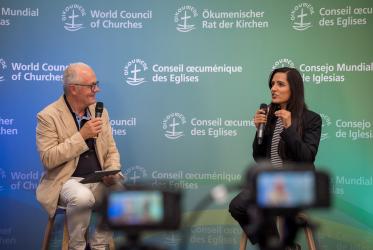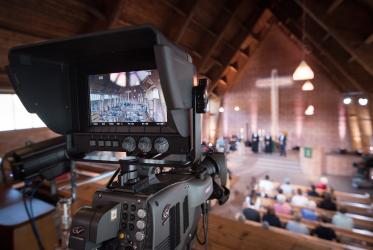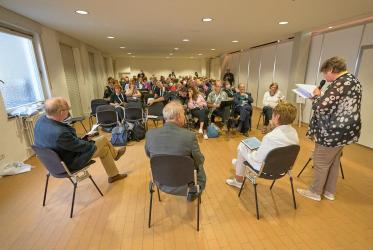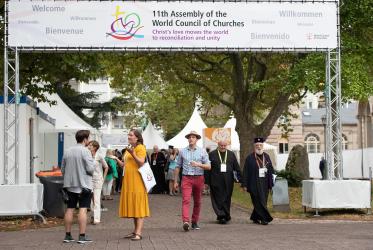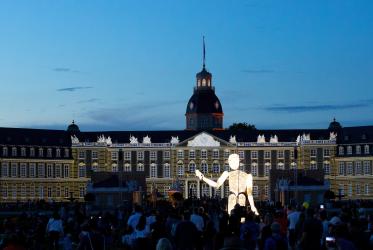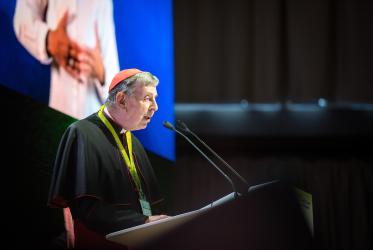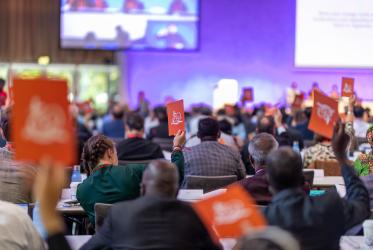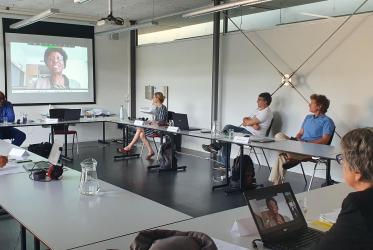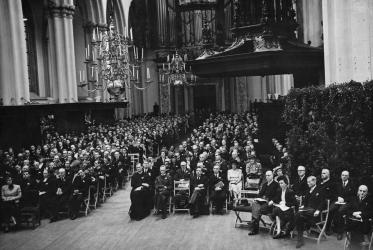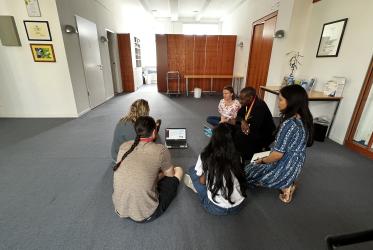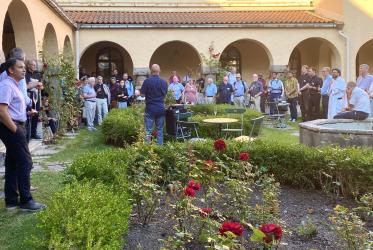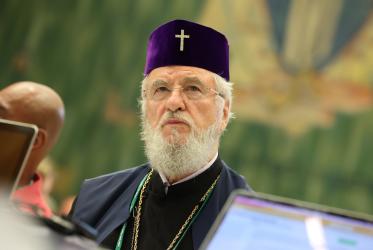Displaying 41 - 60 of 392
06 September 2022
Bible studies bring ways to learn how Christ’s love moves us
06 September 2022
Assembly participants come together as church families
04 September 2022
Christian-Jewish Dialogue: Faith is why we are here today
04 September 2022
WCC journals on cutting edge of a changing world
02 September 2022
WCC 11th Assembly opens—and “nothing can separate us from God's love”
01 September 2022
Pope Francis wants WCC assembly that strengthens bonds between churches
01 September 2022
WCC’s Ecumenical Water Network attends Pilgrim Team Visit
30 August 2022

